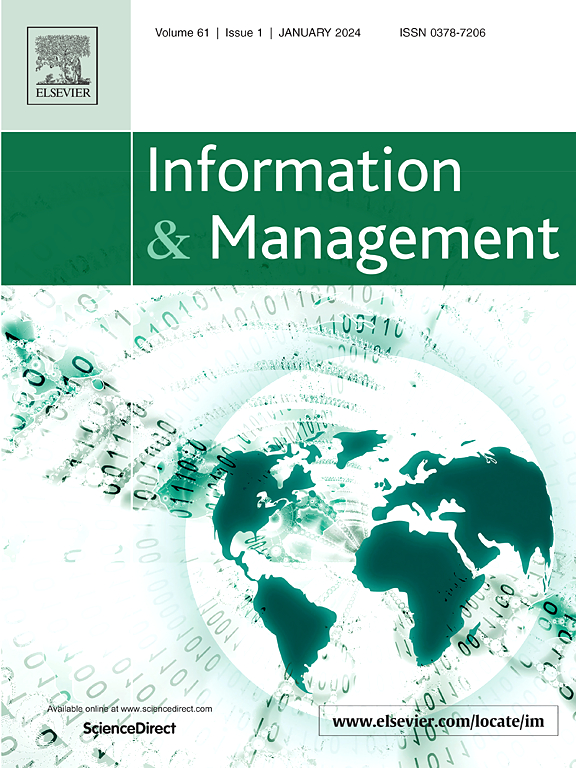The effect of the realism degree of avatars in social virtual worlds: The perspective of self-presentation
IF 8.2
2区 管理学
Q1 COMPUTER SCIENCE, INFORMATION SYSTEMS
引用次数: 0
Abstract
Avatars, serving as a medium for users’ self-presentation, play a significant role in bridging the real and virtual worlds. Limited research has considered users’ desire to present their “hoped-for possible selves” when examining the effect of avatar design. This study addresses this gap by conducting four empirical investigations of the impact of avatar appearance design, particularly realism, on users’ continuing intention to use virtual products. It was found that low-realism avatars, as opposed to high-realism ones, increased users’ continuing use intention. Wishful identification and immersive experience serially mediated the avatar realism effect. The moderating role of users’ familiarity with other avatars was also examined, suggesting that when users were familiar with other avatars, the impact of avatar realism diminished. These findings provide significant contributions to the existing literature and offer actionable guidance for the design of avatars within social virtual environments.
社交虚拟世界中虚拟角色的现实程度影响:自我呈现的视角
化身作为用户自我展示的媒介,在连接现实世界和虚拟世界方面发挥着重要作用。在检验虚拟形象设计的效果时,有限的研究考虑了用户希望展示他们“希望的可能的自我”的愿望。本研究通过对虚拟形象外观设计(尤其是现实主义)对用户持续使用虚拟产品意愿的影响进行四项实证调查,解决了这一差距。研究发现,与高逼真度的虚拟形象相比,低逼真度的虚拟形象增加了用户的持续使用意愿。一厢情愿的认同和沉浸式体验依次介导了虚拟现实主义效应。用户对其他虚拟形象的熟悉程度也起到了调节作用,表明当用户熟悉其他虚拟形象时,虚拟形象现实性的影响减弱。这些发现为现有文献提供了重要的贡献,并为社交虚拟环境中的化身设计提供了可操作的指导。
本文章由计算机程序翻译,如有差异,请以英文原文为准。
求助全文
约1分钟内获得全文
求助全文
来源期刊

Information & Management
工程技术-计算机:信息系统
CiteScore
17.90
自引率
6.10%
发文量
123
审稿时长
1 months
期刊介绍:
Information & Management is a publication that caters to researchers in the field of information systems as well as managers, professionals, administrators, and senior executives involved in designing, implementing, and managing Information Systems Applications.
 求助内容:
求助内容: 应助结果提醒方式:
应助结果提醒方式:


